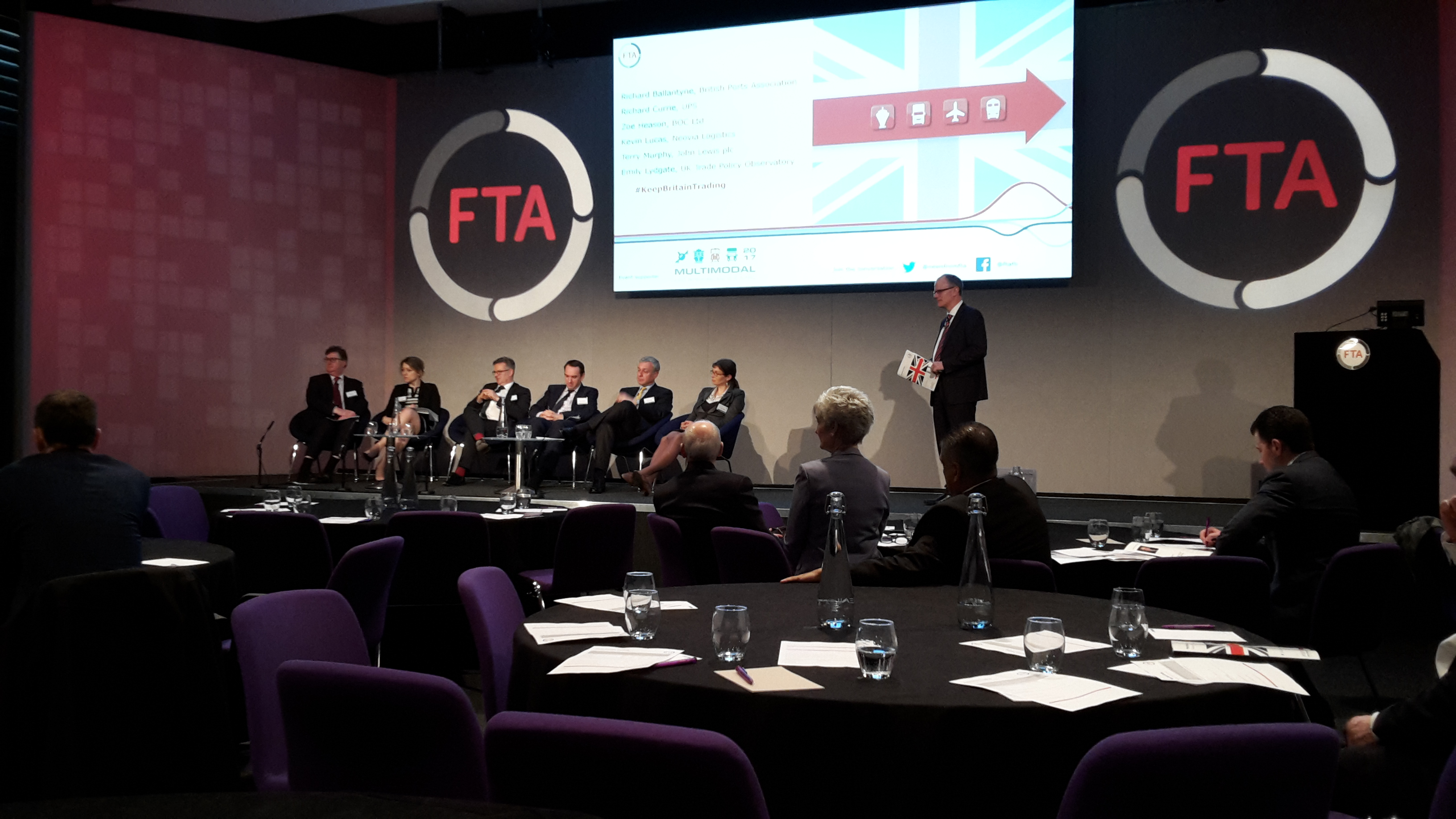Over 300 delegates, including representatives from the UK government, gathered at London’s Queen Elizabeth II Centre for the Freight Transport Association’s (FTA) Keep Britain Trading Conference on 15 March.

After welcoming delegates to the conference, FTA’s Deputy Chief Executive James Hookham introduced a number of speakers from the world of business, politics and economics, each of whom explained the challenges ahead following the Brexit vote and the possible effects it could have on Britain’s trade with Europe and the rest of the world.
Minister of State for the Department for Exiting the European Union, Rt Hon David Jones MP gave an up-beat keynote speech saying that Britain’s exit from Europe would result in better regulations for the UK’s transport sector, including modernising customs procedures with the aim of maintaining frictionless trade with the EU. There would be no ‘cliff edge’ and the government would seek a transitional period to allow time for new arrangements to be brought in.
The Great Repeal Bill, which will be implemented when Britain leaves the EU, will bring all EU laws onto the UK’s books and will be debated and amended by parliament as required over the following years.
Professor Jim Rollo from the University of Sussex was a little less optimistic and was sceptical that an agreement could be reached within the two-year negotiation time frame, bearing in mind the number of Member States involved and the complexity of the issues under discussion. He did, however, agree that it would be essential for a period of transition to be implemented but that such arrangement should not be allowed to go on too long.
Professor Rollo’s colleague, Dr Emily Lydgate, then took to the stage to explain the various trading options open to the UK after Brexit. The government’s decision not to remain in the single market will mean that alternative agreements will have to be negotiated both with the EU and the rest of the world. While Emily’s rather technical presentation broadly outlined how such agreements would work, it was clear that the reality of reaching Free Trade Agreements with our future trading partners would not be easy.
Later, during a panel discussion, Robert Ballantyne, Chief Executive of the British Ports Association, voiced his concerns about possible increased customs checks, especially at the major RoRo ports such as Dover, where as many as 10,000 trucks a day pass through. The UK ports facing Ireland, where there are currently no customs or immigration checks, would also turn into bottlenecks if new regulations were introduced.
Many other concerns were discussed, including the need to ensure that non-UK workers in the transport industry are allowed to continue in their jobs. It was pointed out that the 60,000 foreign drivers currently working for UK firms are vital to the wellbeing of the industry, which is already struggling with a shortfall of over 40,000 drivers.
David Wells, Chief Executive of FTA closed the conference by thanking all delegates and speakers for their contributions. David pointed out that Britain is a net contributor to the EU budget as well as a massive market for the EU, especially Germany, and that consequently we are in a strong negotiating position and should not be downcast about the outcome. There would be bumps along the way but things are as tricky for the EU as they are for Britain.
He said the FTA will be working hard to make sure the government recognises the transport and logistics industry is the backbone of trade, manufacturing and commerce in this country. He encouraged everyone to take part in FTA webinars and seminars to keep up to date with the latest Brexit developments and urged managers to respond to FTA surveys and consultations, as this is how the Association provides feedback in response to government requests for information.
On leaving, all delegates were presented with the FTA’s Brexit Manifesto, which explains the Association’s policy across seven key points of the Brexit negotiations.
For more information about Brexit and to view the FTA’s manifesto visit www.fta.co.uk.
Pictures: Rt Hon David Jones MP gives keynote speech
FTA’s James Hookham hosting the event